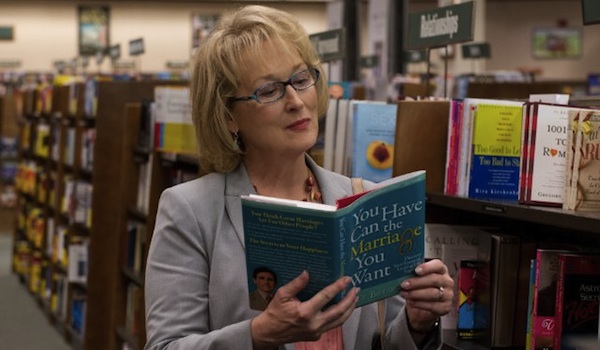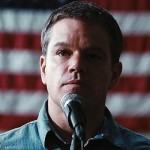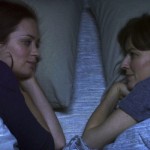Hope Springs Review
David Frankel (whose The Big Year was, improbably, both one of last year’s biggest surprises and worst films) must have quite a rapport with Meryl Streep. He directed her to an Oscar nomination in The Devil Wears Prada, and he somehow convinced her to star in his latest, Hope Springs—a film that doesn’t know if it wants to be serious or funny.
For the record, it isn’t funny. At least half of its running time is spent in a therapist’s office, and one of the principal characters has poorer social tendencies than Oscar the Grouch. When it really focuses on its characters problems, however, it’s on solid ground. It’s consistently uncomfortable to watch, but Streep is golden, and Tommy Lee Jones gives his best performance since No Country for Old Men. If only the film around them was a little stronger, they could have been in the running for Oscar nominations.
Kay (Streep) is fed up with her husband, Arnold (Jones). They sleep in separate beds, he shows her no affection, and he won’t even acknowledge that they’ve grown apart. Kay, however, is a trooper; She bites her tongue like she always does and continues to make Arnold his eggs and bacon every morning with nary a “Thank you” for her troubles.
One day, she comes across a book by a Dr. Feld (Steve Carell), and his intense couples therapy method sounds exactly like what she needs to bring back some fulfillment in her relationship. Arnold, predictably, doesn’t want any of it—even the lovely trip to Maine, where Feld’s office is located—but he gives in and accompanies his wife. Of course, that’s only the beginning of his consternation…
Hope Springs keeps moving along because we recognize Arnold does, deep down, care about Kay. He only shows it in a handful of scenes, and Frankel’s film might be a little more satisfying, ultimately, if it dug deeper into what makes this guy tick. But when he’s showing Kay affection—or trying to, at least—it’s quite sweet.
Unfortunately, those instances are few and far between. We spend a great deal more time on the therapist’s couch with Kay and Arnold than we do with them in the real world actively trying to repair their broken bond. Frankel’s approach when these two are visiting Dr. Feld is that of nervous comedy. Feld asks Arnold if he’s ever experienced ED. He asks Kay what some of her sexual fantasies are. Both are uncomfortable answering these questions, so they fumble their worlds, and we’re meant to find such behavior hilarious? It’s not; In fact, laughing at it feels a little mean-spirited, especially when Kay ends the occasional session in tears. Their problems are real. They hurt. And leavening this material with “humor” makes the entire film feel a little tacky.
Jones and Streep still manage to shine, however. The former is incredibly crotchety, but when Arnold lets his guard down, he has a great deal of charisma, and in those few moments, it isn’t hard to see why Kay fell in love with him and why she’s so hellbent on rekindling what they had. Of course, a lot of that has to do with her muted personality. She’s not one to say or do anything risky or impassioned. She’s the definition of mild-mannered, and leaving her husband—no matter how dickish he’s become—is way outside her comfort zone. She’s the kind of character whose saintliness could easily become grating after a while, but not with someone like Streep onboard to play her. The actress (coming off her third Oscar win for The Iron Lady) truly glows and turns her character into someone adorable and totally sympathetic.
But these two, as good as they are, just can’t carry the film. It’s unfortunate because an honest film about stagnant relationships between long-married individuals could, in theory, do some good. Hope Springs takes the easy way out, and though it’s not without its small pleasures, it’s not the film it could or should be.

















